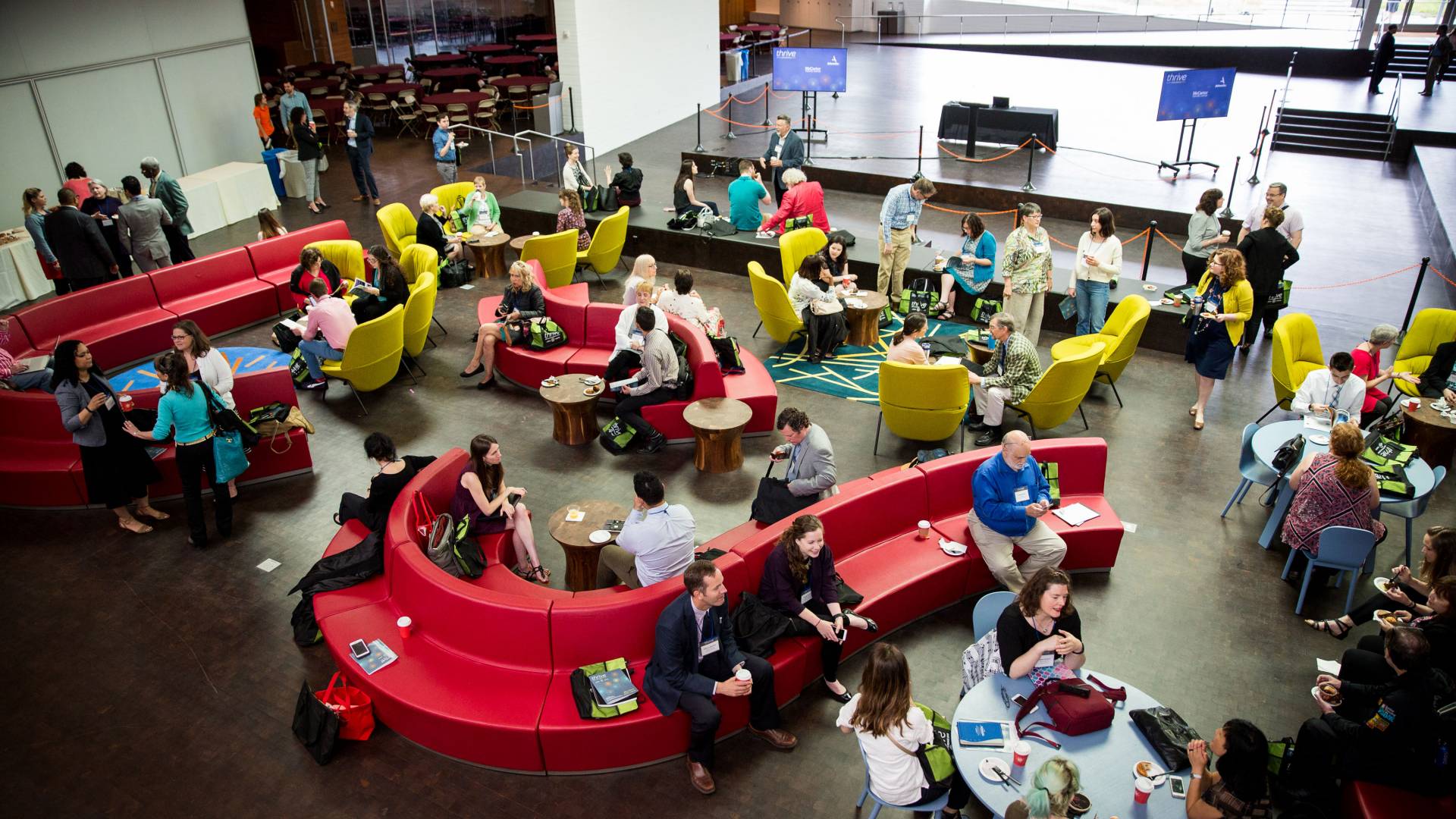Attendees at Thrive Arts Conference, held June 7 at Princeton University, enjoy networking and socializing opportunities in the spacious Forum at the Lewis Arts complex. The biennial conference is co-sponsored by the Lewis Center for the Arts, ArtPride New Jersey and the New Jersey State Council on the Arts.
Thrive Arts Conference, held June 7 at Princeton University, gathered nearly 300 executive, marketing and development professionals from about 130 cultural and arts organizations across New Jersey for a full day of programming. The agenda focused on the changing landscape of the arts sector from audience demographics to new technologies.
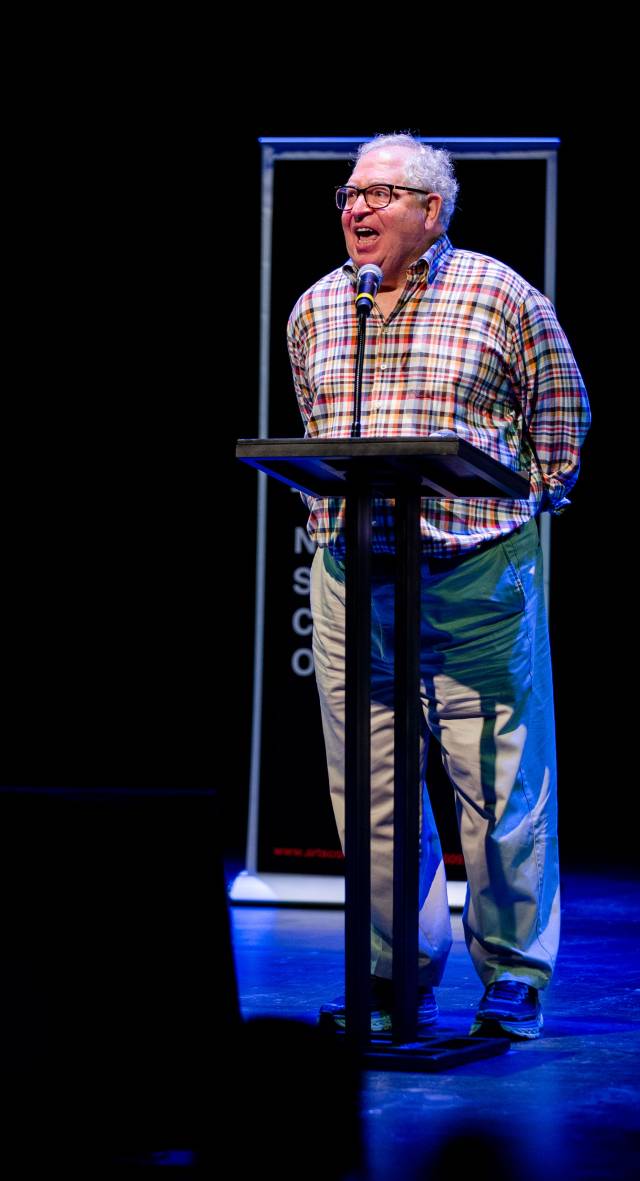
Michael Cadden, chair of the Lewis Center and a senior lecturer in theater, welcomes the attendees before the keynote address in McCarter Theatre Center's Berlind Theatre.
Princeton's Lewis Center for the Arts has co-sponsored the biennial conference with ArtPride New Jersey and the New Jersey State Council on the Arts since its inception in 2012. It has always been held on the University campus.
Steven Runk, director of communications for the Lewis Center and chair of the Thrive Arts Conference planning committee, said that the conference has grown annually. This year, workshops, breakout sessions, networking and socializing opportunities, and performances took place in the Hearst Dance Theater, the Wallace Theater, the CoLab and the Forum of the new Lewis Arts complex, as well as in McCarter Theatre's Berlind Theatre, across the street.
"The Lewis Center feels very much a part of the arts community in New Jersey and shares the belief of the other co-sponsors that it is important for that community to stay on top of trends in our field and to learn best practices," said Marion Young, executive director of the Lewis Center. "And perhaps most importantly, this broader artistic community will continue to find ways to partner, collaborate and advocate for the arts across the state."
The day started off on a high note — literally — with a rousing performance of "Brand New Day" and other Broadway hits by the Paper Mill Playhouse Broadway Show Choir, a tuition-free, audition-only youth choir, at the Berlind. McCarter Theatre was one of this year's conference co-sponsors.
Following the performance, Michael Cadden, chair of the Lewis Center and a senior lecturer in theater, welcomed the attendees.
Cadden said that many seniors in the Program in Theater have the opportunity to perform in or see their original work performed on the Berlind stage. He noted, for example, that when Brandon Jacobs-Jenkins, a 2006 alumnus, was working on his senior thesis production," he was writing up to the last moment," making revisions during the run of the play. Jacobs-Jenkins went on to win the 2014 Obie Award for Best New American Play for two plays: "Appropriate" and "An Octoroon."
The conference included a keynote address by Adam Huttler of Exponential Creativity Ventures, an early-stage venture capital fund that focuses on technology startups that enhance human creativity.
Attendees could choose from a number of breakout sessions.
In the session "Expanding Our Voices to Reflect Changing Demographics," James Claiborne, public programming manager of the African American Museum in Philadelphia, looked out at the audience in the Hearst Dance Theater and said: "It's beautiful to see a room as diverse as the country I love, the city I love and the artists I love. This work is about a collective understanding."
He shared insights about diversity, equity, accessibility and inclusion.
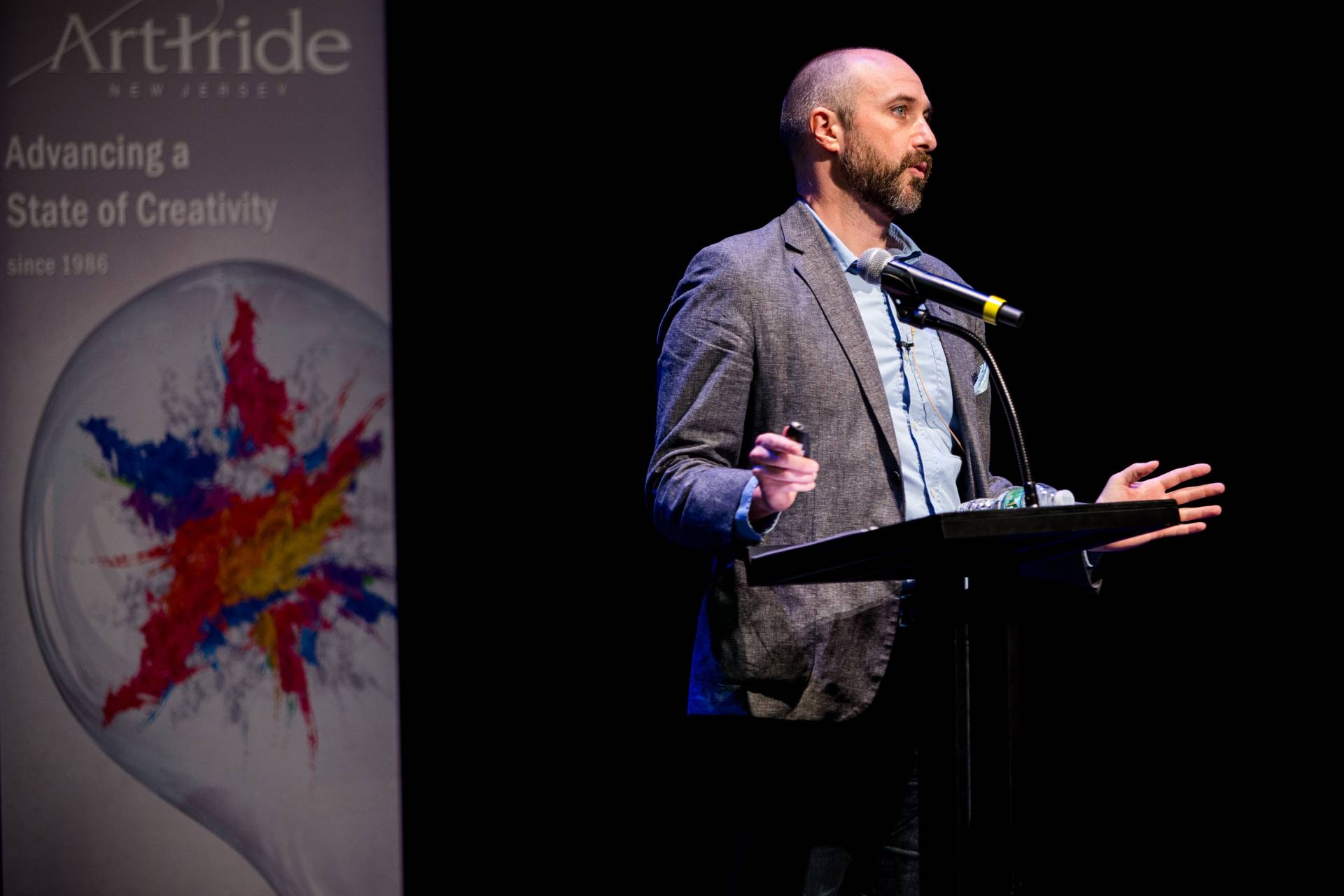
During his keynote, Adam Huttler of Exponential Creativity Ventures focused on the many ways in which the prevalence of human creative expression is increasing — not decreasing as some might imagine — as new technologies, including AI, come to the fore.
"Every arts and cultural professional must do personal work to face unconscious bias," Claiborne said. "We like to think we are the open ones, but we all have bias, the human tendency to make these micro-assessments. Our individual experiences will impact the way we approach individuals — who we call when we hire a vendor, who is on our staff, who we look for when we hire, who we invite to our board. We personify our institutions ... and our institutions are given voice by the individuals who work there."
Claiborne said inclusion "is central to the effectiveness and sustainability of organizations. There's a massive opportunity to engage new voices."
He invited the audience to share a success story about how their work or organization has been impacted by this kind of engagement.
Hannah Walker, institutional marketing manager at Two River Theater in Red Bank, New Jersey, spoke about the theater's Crossing Borders festival, which features staged readings of new works by Latinx playwrights. She said that following the reading of 'El Coquí Espectacular and the Bottle of Doom' by Matt Barbot, the theater mounted a full production of the play as part of the 2017-18 mainstage season. "[This choice] helped feed into the audience and led to broader attendance by members of the Latinx community, as well as more millennials and a younger audience," she said.
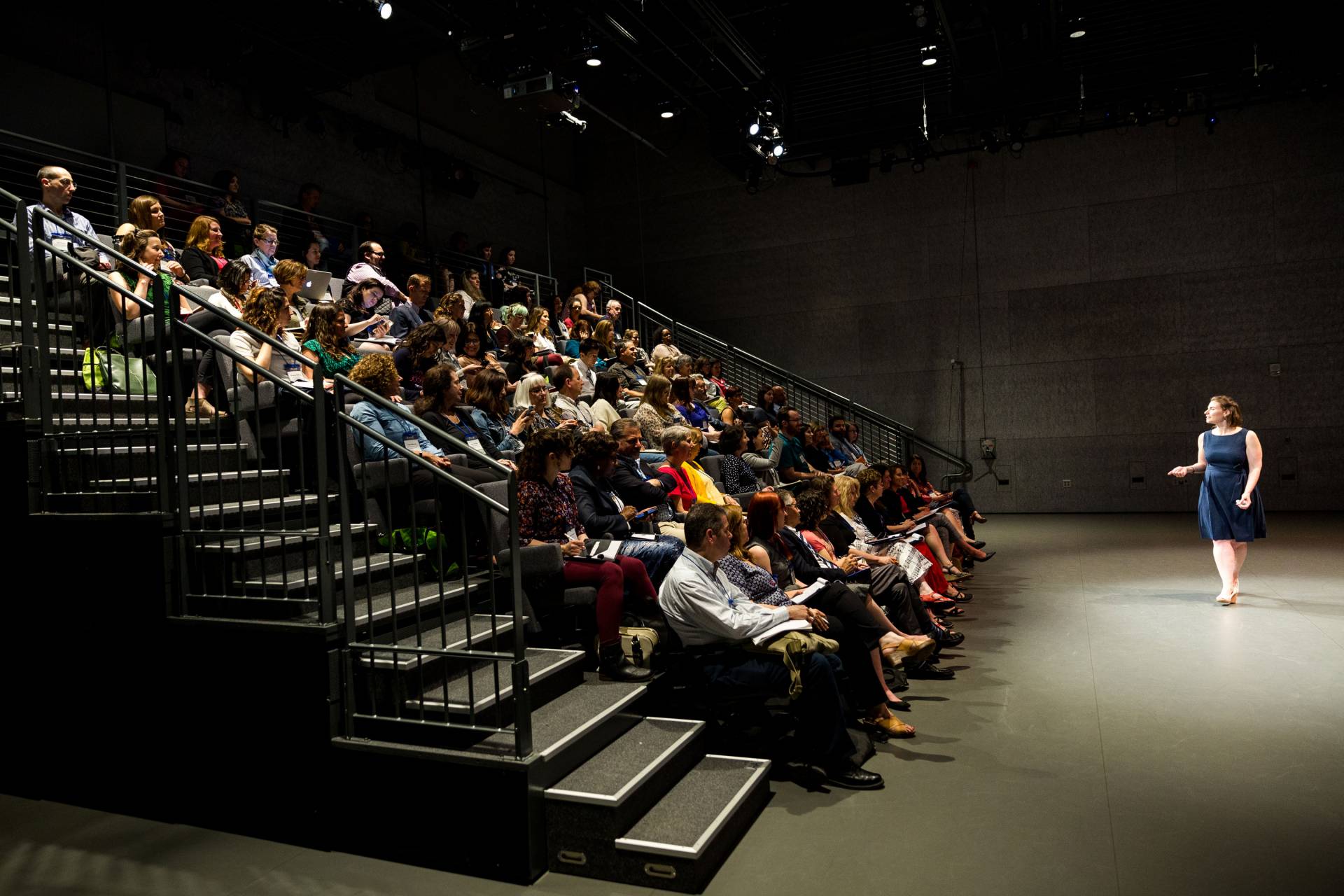
Katryn Geane of Situation, a New York City-based digital agency focused on entertainment and live events, used client examples from the Metropolitan Opera to the Broadway hit "Dear Evan Hansen" to illustrate innovative social media strategies — what she calls digital "rules of engagement" in the creative sector.
Robert Worshinski, director of marketing and public relations at the Shakespeare Theatre of New Jersey, in Madison, said he got a lot of practical information from one of the afternoon breakout sessions, "Harnessing the Power of Google," led by Bruce Mishkin, president of Adventix, a New Jersey-based agency that helps arts organizations navigate the digital world.
Worshinski plans to use one of Google's new offerings Mishkin discussed — the Google My Business page — to increase visibility and awareness of the Shakespeare Theatre among current and prospective patrons. "[It] will allow patrons to make donations or go directly to a sales page for tickets without ever having to visit our website; all of the information can live on the Google My Business page; and will automatically come down after an event is complete," Worshinski said.
Other sessions focused on social media, economic trends, audience engagement and using data effectively. The afternoon wrapped up in the Forum of the Lewis Center with a performance by the chamber ensemble Whitman Winds; the presentation of the Jersey Arts Marketers Leadership Award to Heather Yelle, director of external relations, Appel Farm Arts and Music Center in Elmer, New Jersey; and "Thrive Jeopardy," an interactive session where attendees vied for prizes by testing their knowledge gleaned from the conference, led by Paula Alekson, artistic engagement manager, McCarter Theatre Center.
Walker of Two River Theater said she had a great time at the conference and was impressed by the programming. "The speakers were thoughtful and interesting, the structure of the day was a great blend of break time and session time, and the overall atmosphere was very much relaxed and friendly, but [with everyone] still eager to be productive and learn," she said.
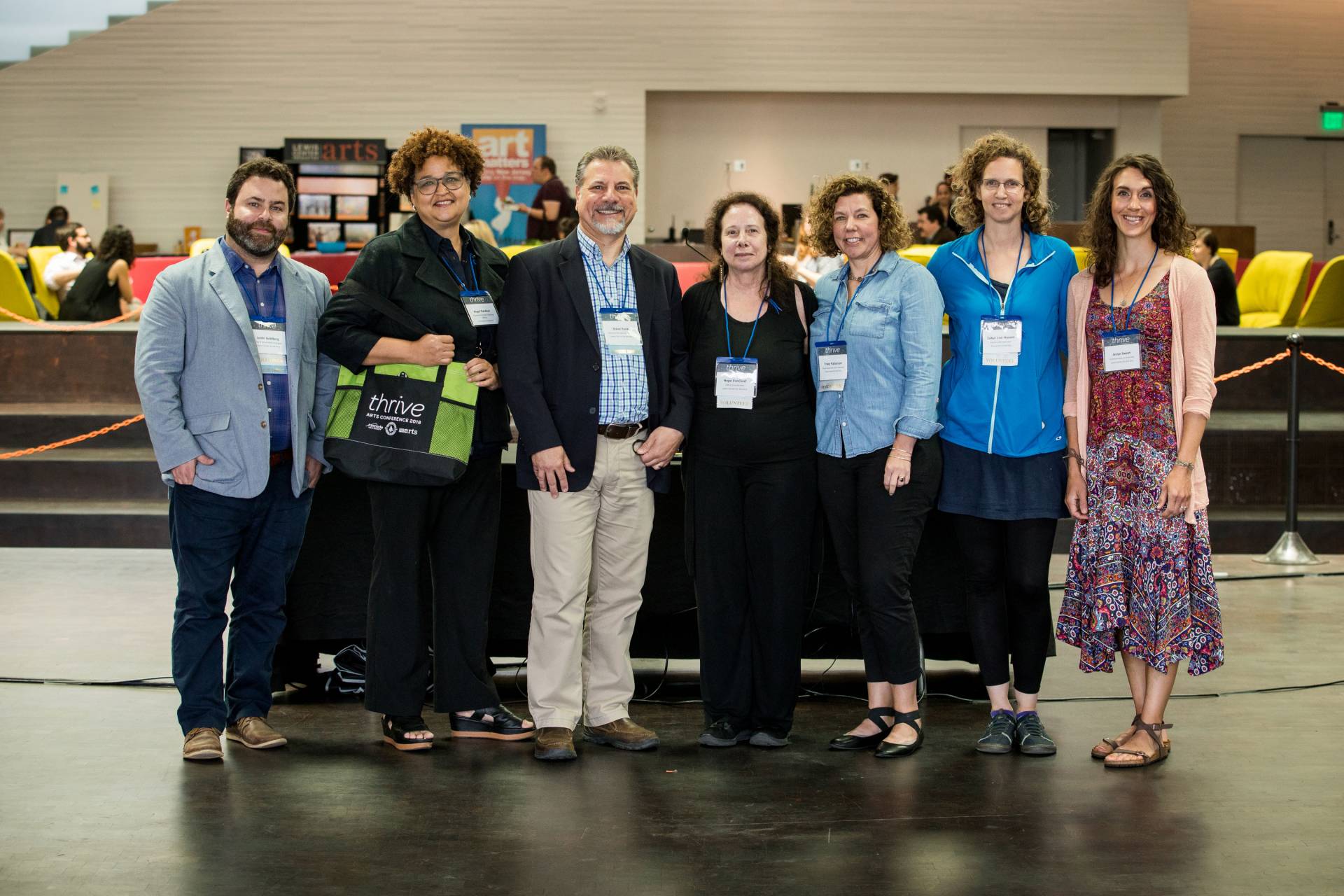
Lewis Center for the Arts staff members enjoy the morning coffee break. From left: Justin Goldberg, web and multimedia strategist and a member of the Thrive Arts Conference planning committee; Angel Gardner, assistant director of external affairs; Steven Runk, director of communications and chair of the Thrive Arts Conference planning committee; Hope VanCleaf, communications assistant; Tracy Patterson, visual communications specialist; Zohar Lavi-Hasson, videographer; and Jaclyn Sweet, communications associate.
